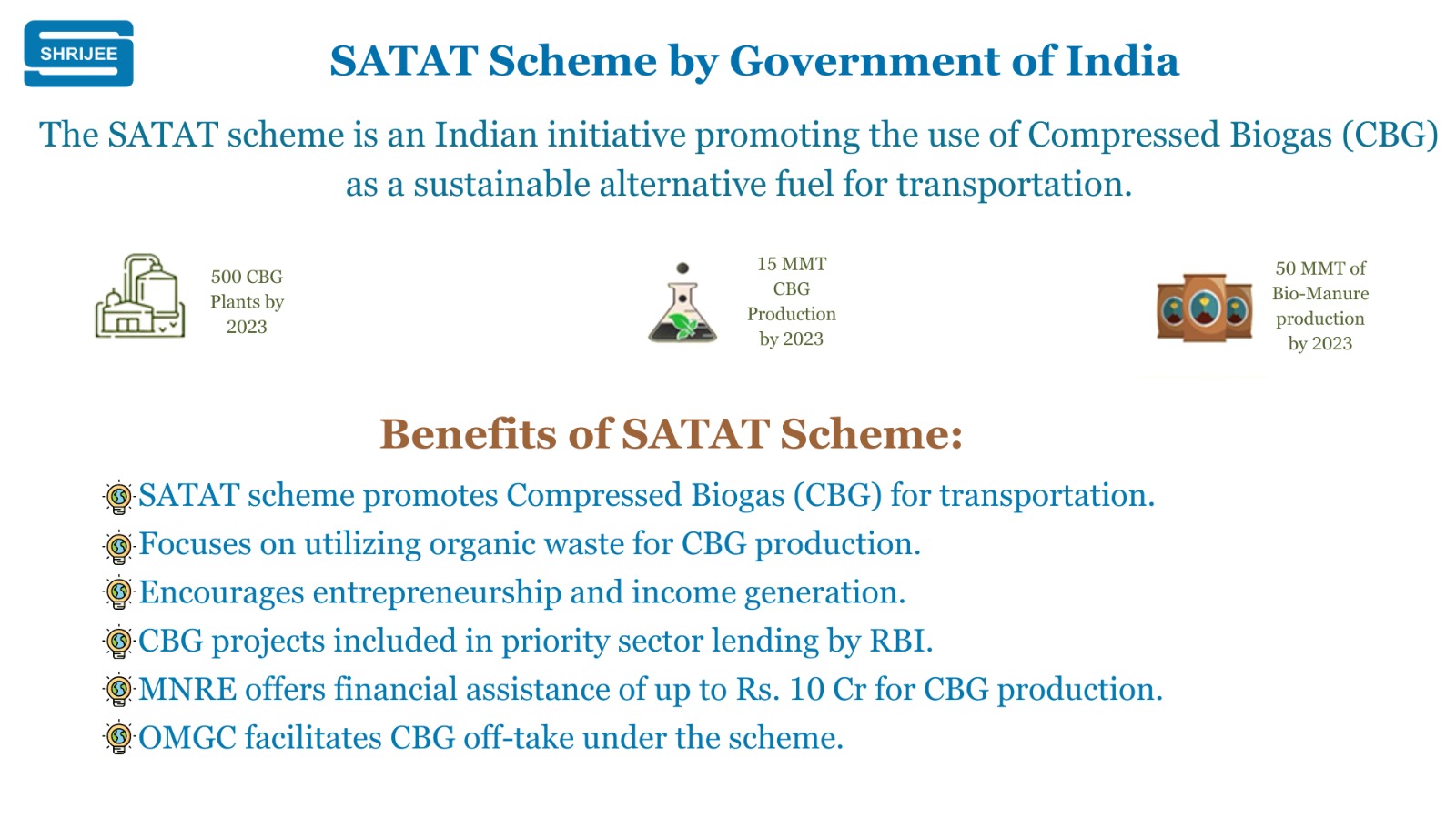Indian Government Support
India is a net energy importer of fossil fuels with +45% of its energy needs met through import in 2018. Of the fossil fuel basket, India imports about 25 million tons of natural gas (in liquified form) annually and it sees biogas (or biomethane) as a viable alternative to reduce its import dependence.
To improve self-reliance, the government of India announced the SATAT scheme which targets to facilitate setting up of 5000 Compressed Biogas (CBG) plants by 2023 to generate 15 million MT of CBG annually. To incentivize investment in Biogas plants, the SATAT scheme offers:
- A long-term purchase contract (10 years) for CBG by national Oil Marketing Companies
- Price linked to market retail price (~75% of Retail Selling Price) with lower cap of Rs. 54
- Capital subsidy (reimbursement) of Rs. 4-10 crores per project
- Priority lending: SBI provides 70% finance for period of 12 years
The SATAT scheme offers a guaranteed market to all biogas produced by companies that have entered into a supply contract with oil companies at attractive price linked to the retail price of CNG. Based on this supply contract, the nationalized Banks are encouraged to offer loans of prioritized terms including reasonable interest rate, longer payback period and up to 70% financing of total project cost (excluding subsidies).

On November 7, 2022, the Indian government announced that it will continue its Bioenergy Programme until 2025-26. The Union Ministry of New & Renewable Energy committed a budget outlay of Rs 858 crore, which has been earmarked for the first phase of the programme. It will support the use of huge surplus biomass, cattle excrement and industrial and urban biowaste available for energy recovery.
The National Bioenergy Programme will include the Waste to Energy Programme (Programme on Energy from Urban, Industrial and Agricultural Wastes/Residues). It will support the setting up of large Biogas, BioCNG and Power plants (excluding MSW (municipal solid waste) to power projects).
Government mandates blending of CBG in CNG and PNG
November 25, 2023
In an attempt to boost the utilisation and adoption of compressed biogas (CBG), the National Biofuels Coordination Committee has announced a phase-wise, compulsory integration of CBG into both, compressed natural gas (CNG) for transportation and piped natural gas (PNG) for domestic segments within the city gas distribution sector. The minister of petroleum and natural gas highlighted that the compressed biogas blending obligation (CBO) aims to encourage the generation and utilisation of CBG across the nation.
The main goals of the CBO include boosting CBG demand in the city gas distribution (CGD) sector, replacing imported liquefied natural gas, achieving forex savings, fostering a circular economy, and contributing to the attainment of net-zero emissions targets, among other objectives. This initiative is expected to attract investments totaling Rs 375 billion and pave the way for the development of 750 CBG projects by fiscal year (FY) 2028-29. The minister has further emphasised that CBO would remain optional until the FY 2024–2025 and that blending obligations will become mandatory beginning from FY 2025-2026. For the FYs 2026, 2027, and 2028, the CBO will be set at 1 per cent, 3 per cent, and 4 per cent of the overall consumption of CNG or PNG, respectively. The CBO will increase to 5 per cent starting from FY 2028-29. A Central Repository Body will oversee and enforce the blending mandate in accordance with the operational guidelines sanctioned by the minister.
https://pib.gov.in/

